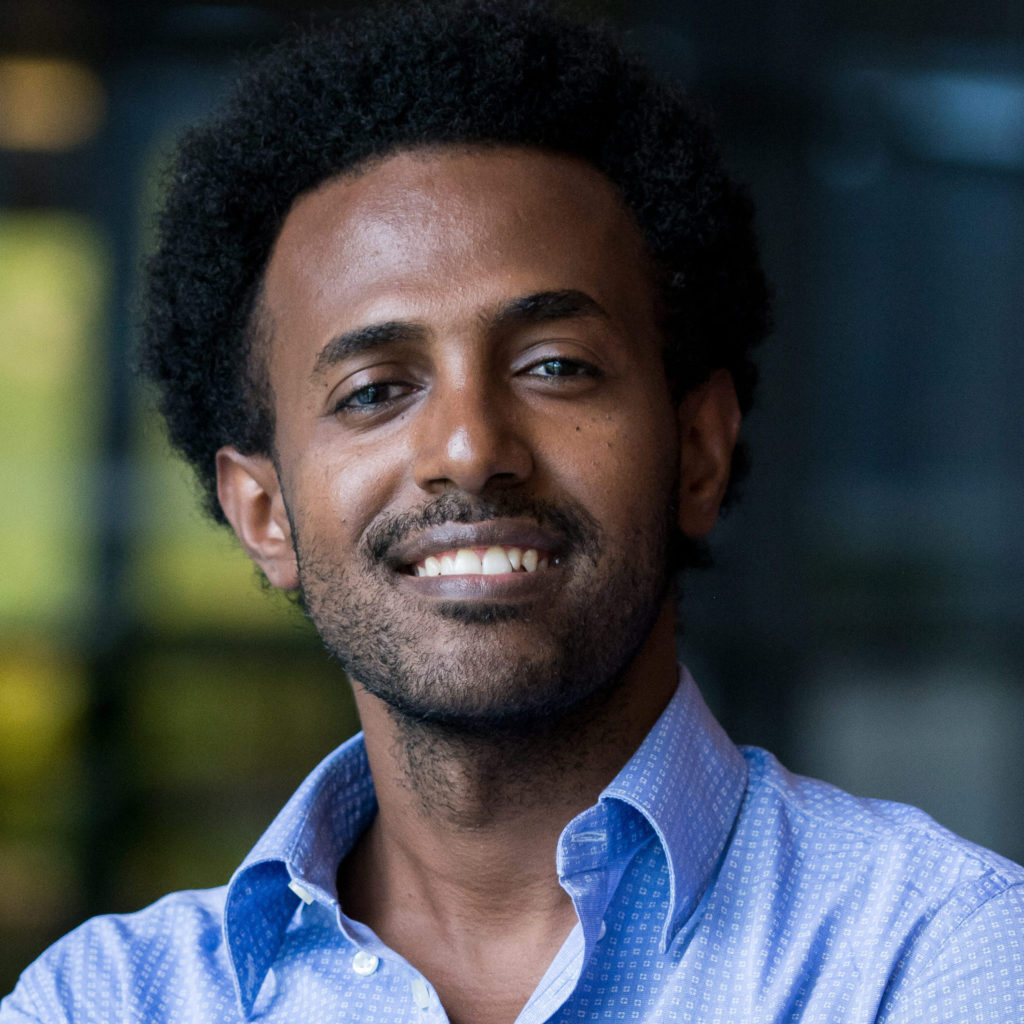NEF Fellow

Yabebal Fantaye
Country:Ethiopia
Area of Research:Cosmology
Institution:African Institute for Mathematical Sciences (AIMS)
Yabebal wants to have a significant impact in understanding the statistical properties of
the Universe. He also wants to enable data abundance in Africa by extracting useful data locked in satellite images and social network structures.
Yabebal was born and raised in Addis Ababa, Ethiopia. As a teenager, he spent most of his time rearing doves and playing many types of street games like Korki (ቆርኪ) and others. At 15, the inability to sleep at night led him to the realization of the power of reading books. By studying hard in the last two years of high school, he scored the required marks to gain entry to Addis Ababa University. He started his academic journey with a Bachelor of Science in Physics and Mathematics from Addis Ababa University (AAU). During his undergraduate time at AAU, he co-founded the AAU Experimental Group, which produced improved tools for energy production and land ploughing. In his second year at AAU, he helped fix a broken 8 inch telescope and managed to observe the craters of Moon and the moons of Jupiter. This was Yabebal’s first close up interaction with the heavenly bodies. He then started studying the night sky and reading about constellations and bright objects on the sky. He learnt that Cepheus, Cassiopeia and Andromeda are also known as the Ethiopian King, Queen and Princess. This gave him the inspiration he needed to pursue a career in investigating what lies up in the cosmos – and what science knows about the beginning, evolution and fate of the Universe we live in.
After his bachelor’s degree, he pursued an Honours and Master’s degree at the University of Cape Town through the National Astrophysics and Space Science Program (NASSP). Following that, he went to the School for advanced studies (SISSA) in Trieste, Italy, for his PhD in Cosmology. In 2013, while a postdoctoral researcher at the University of Oslo, he joined the Planck Satellite Consortium, European Space Agencies’ experiment. After completing a second Postdoctoral fellowship at the Department of Mathematics in the University of Rome Tor Vergata, Yabebal moved to the African Institute for Mathematical Sciences (AIMS) South Africa to take up the AIMS-ARETE Junior Chair.
Yabebal’s research investigates the statistical properties of the Universe using the Cosmic Microwave Background (CMB) data from the Planck satellite. His research tries to address questions like, is there any evidence in our data that is not compatible to our assumption of a Universe without any preferred direction or preferred time? His second research area focuses on developing machine learning and other advanced statistical methods for harnessing the African GIS and social Big Data for extracting actionable insights to help Africa meet the UN Sustainable Development Goals.
Yabebal believes Young Africans should study science because it offers the best way to solve real world problems. He is a member of the Planck and Euclid Consortium and has spent the last two years leading an outreach program in Ethiopia called Astrobus Ethiopia that includes social scientists, fashion designers, artists, innovators and scientists to deliver holistic stimulation for scientific thinking.
